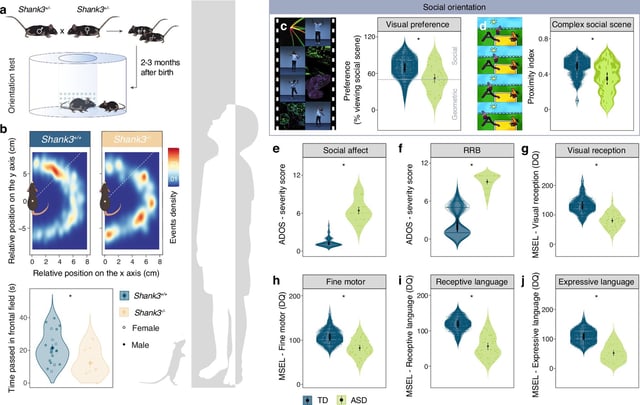Overview
- University of Geneva researchers identified a defective communication pathway between the superior colliculus and ventral tegmental area in the brain as a key factor in social interaction challenges in autism spectrum disorder (ASD).
- The defect was validated through studies on Shank3 knockout mice, which exhibited social orientation deficits similar to those seen in children with ASD.
- Innovative unsedated MRI protocols in young children confirmed the presence of the same neural circuit defect, enabling early prediction of cognitive outcomes.
- Deficits in rapid attention shifting hinder the ability of children with ASD to interpret social cues, leading to broader cognitive development challenges.
- Intensive behavioral interventions, requiring 20 hours per week over two years, have shown significant success, improving IQ scores by an average of 20 points and allowing 75% of participants to attend mainstream schools.


